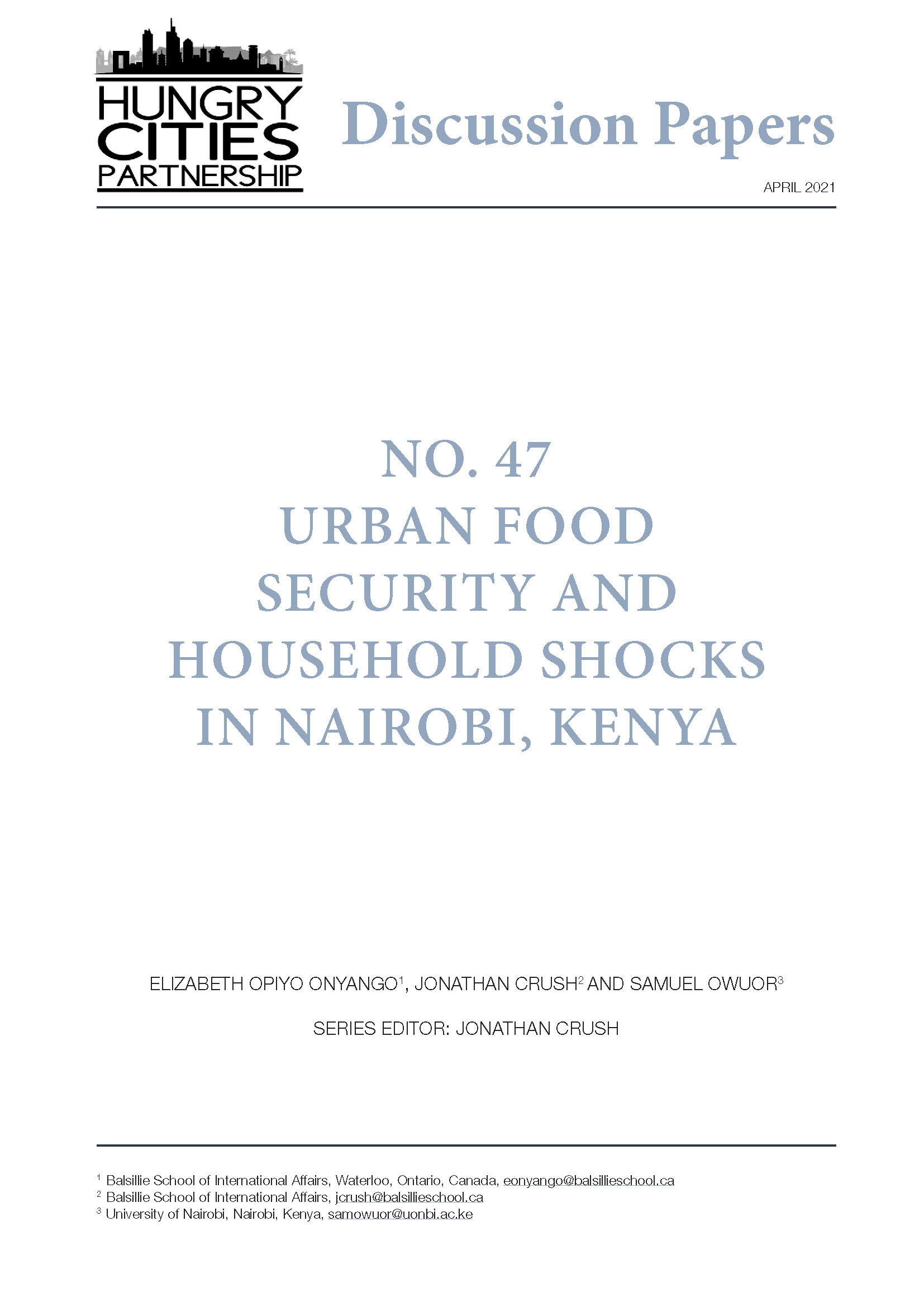Even though urban poverty is a key component of the development agenda in Nairobi with a focus on job creation, provision of basic infrastructure (such as roads and clean drinking water), food security has traditionally been omitted by city planners and managers despite its centrality to people’s health and wellbeing. One of the consequences of the lack of integration of food security into development planning is that emergency food preparedness planning has not been viewed as a priority. Rather, emergency procedures are only enacted when a food emergency is already in progress. This discussion paper demonstrates that female-centred households, households reliant on casual labour, and low-income households are all particularly vulnerable to food insecurity. The findings boost the case for the focus of the draft policy on urban food emergencies. They also suggest that Nairobi needs to develop an integrated food security emergency plan for responding to major economic and other shocks to household food security.

